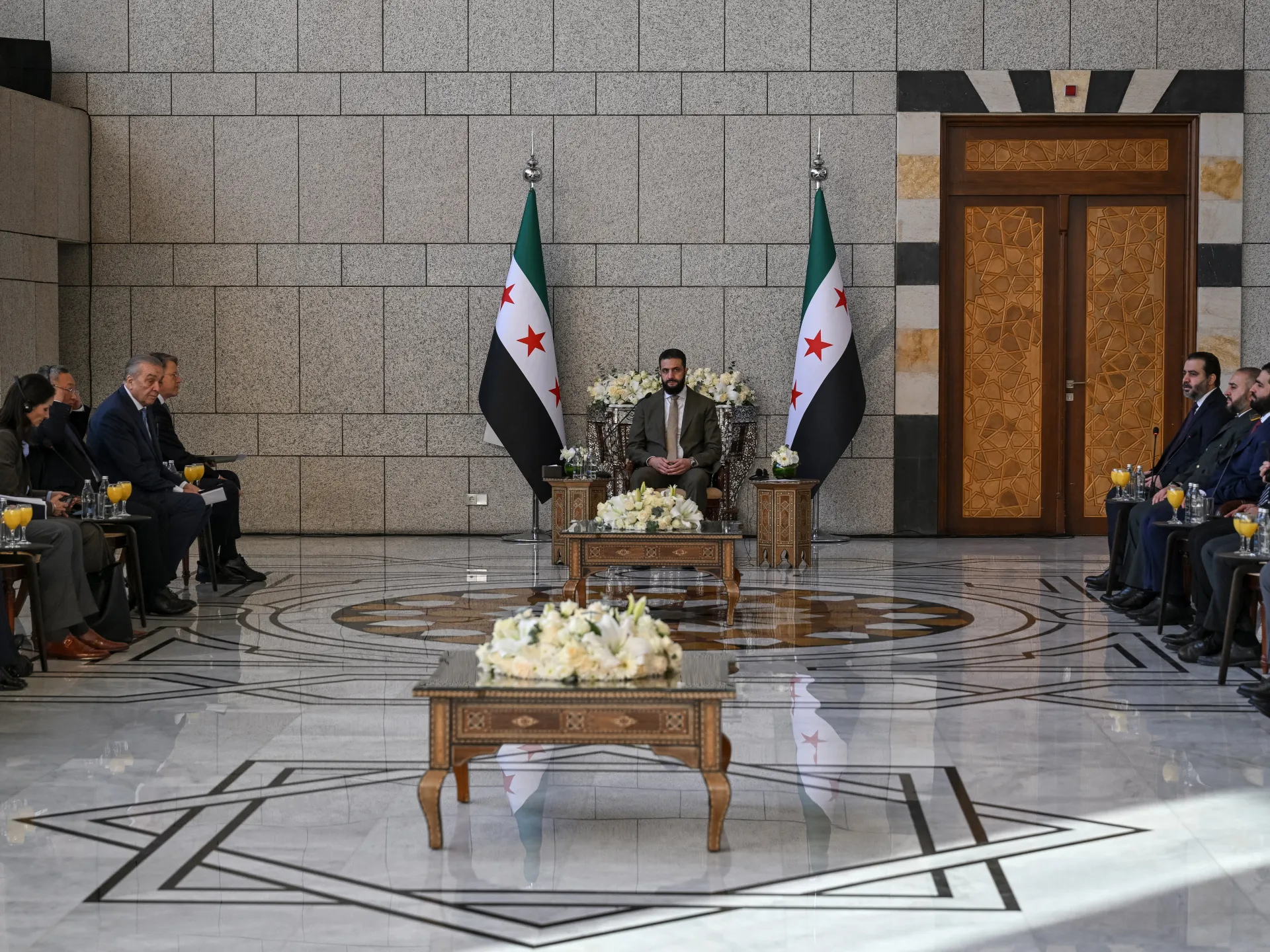UNSC delegation visits Syria on first trip a year after al-Assad’s fall | United Nations News
The UN says the visit comes ‘at a crucial time for the region’, as it seeks to bolster ties with Syria.
A United Nations Security Council (UNSC) delegation has arrived in Syria for its first-ever trip to the country, reported state media, just days before the war-ravaged nation marks the first anniversary of the ousting of longtime ruler Bashar al-Assad.
The UNSC delegation arrived via the Jdeidet Yabous border crossing between Lebanon and Syria and “is scheduled to meet a number of Syrian officials” and members of civil society, state news agency SANA reported on Thursday.
Recommended Stories
list of 3 itemsend of list
Shortly afterwards, the agency said the delegation was visiting the capital Damascus’s heavily damaged suburb of Jobar.
The diplomats will meet Syria’s new authorities, including President Ahmed al-Sharaa, before visiting neighbouring Lebanon on Friday and Saturday.
While the UN works to re-establish itself in Syria, the council recently lifted sanctions against al-Sharaa, a former rebel fighter whose forces led the lightning offensive that ousted Bashar al-Assad last December.
The UN has urged an inclusive transition in the multiethnic country. With international legitimacy one of al-Sharaa’s main priorities, the government has been seeking to keep a lid on eruptions of sectarian violence.
Last month, the killing of a Bedouin couple just south of the country’s third largest city, Homs, threatened to spark sectarian clashes like the ones reported in coastal areas in March and again in Suwayda in July. However, security forces from the ministries of interior and defence deployed to the area and, in tandem with some tribal leaders, calmed the situation.
The nation ravaged by 14 years of ruinous civil war has also had to contend with more brazen, frequent and violent Israeli military incursions since it expanded its occupation of southern Syria over the past year, despite assertions by al-Sharaa’s government that it is not looking to engage in hostilities with Israel.
Most recently, an Israeli raid last week killed 13 people in the town of Beit Jinn, southwest of Damascus.
Israel seized territory in the Syrian Golan Heights following the 1967 war and has held it ever since. However, following the fall of al-Assad, Israel violated a 1974 agreement and again invaded its neighbour’s territory, occupying more land along the border as part of a “buffer zone”, including the strategically located Jabal al-Sheikh, a mountain that commands views over northern Israel and southern Syria.
Talks have been ongoing over a security agreement between Israel and Syria for months, but appear to have made little progress in recent weeks.
Slovenian UN ambassador Samuel Zbogar told a news conference on Monday, “The visit to Syria and Lebanon is the first official visit of the Security Council to the Middle East in six years, the first visit to Syria ever.”
Slovenia currently holds the UNSC’s rotating presidency.
The trip comes “at a crucial time for the region” and for both countries, Zbogar said, noting the new authorities’ efforts towards Syria’s transition as well as a year-old ceasefire in Lebanon between Israel and Hezbollah, “which we see daily that is being challenged”.
The visit is important in “expressing support and solidarity with both countries, and learning about the challenges, conveying the messages, also, on the path forward that the council would like to see in both countries”, he added.
He noted that “there’s still a bit of lack of trust in the UN-Syria relationship, which we try to breach with this visit”.
UN Secretary-General Antonio Guterres’s spokesman, Stephane Dujarric, said on Tuesday, “We very much hope that the visit will increase the dialogue between the United Nations and Syria.”
